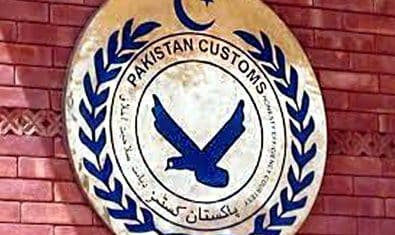Banks are not responsible for anti-money laundering and countering the financing of terrorism (AML/CFT) obligations of the financial institutions regulated by the Securities and Exchange Commission of Pakistan (SECP).
SECP officials explained on Friday that the banks are not responsible for the obligations of a regulated person (financial institution) of the SECP, and the responsibility for compliance with the AML/CFT Regulations will rest with the SECP’s regulated persons.
The Securities and Exchange Commission of Pakistan (SECP) has also announced that the Financial Action Task Force’s (FATF), anti-money laundering, and countering the financing of terrorism (AML/CFT) obligations are imposed separately on every financial institution that is providing financial services.
SECP was responding to a query: “If the client makes payments through banking instruments to an NBFC, insurance service provider or a securities broker, or any other SECP regulated person (RP) for the execution of transactions in its account, then can we assume that the said client payments should not be subject to further KYC/CDD inquiries by the regulated person, since it is presumed that the same is already inquired from the client by its respective bank?”
In case the bank shares the KYC documents or information of a customer (for example in the case of Roshan Digital Accounts-RDA) to facilitate the process of customer onboarding at the RP’s end, SECP regulations allow a mechanism for third party reliance on CDD. The regulated persons may avail of this facility after complying with the relevant requirements as specified in Regulation 24, Reliance on Third Parties”, SECP officials explained.
So, if banks share their Customer Due Diligence (CDD), and the financial institution/ Regulated Person/Entity is in compliance with the requirements of Regulation 24, the RP can rely on it, otherwise, the RP must carry out its own customer due diligence measures.
The SECP’s regulated persons included securities brokers, futures brokers, insurance companies, Takaful operators, the Non-Banking Finance Companies (NBFCs), and Modarabas.
SECP officials explained that while routing of funds through banks is considered a safe mechanism under the risk factor of ‘Delivery channel’, however, it may please be noted that risk assessment and rating of a customer depends on the other three factors as well namely customer, product, and geography.
SECP officials also explained in detail the new version of Frequently Asked Questions (FAQs) on anti-money laundering and countering the financing of terrorism (AML/CFT). The purpose of these FAQs is to facilitate understanding of SECPs’ regulated persons (RPs) under the AML/CFT regime and to meet evolving regulatory expectations for anti-money laundering and sanctions compliance.
This batch is specially focused on topics relating to Customer Due Diligence (CDD), Politically Exposed Persons (PEPs), Targeted Financial Sanctions (TFS), and other AML/CFT related obligations.


























